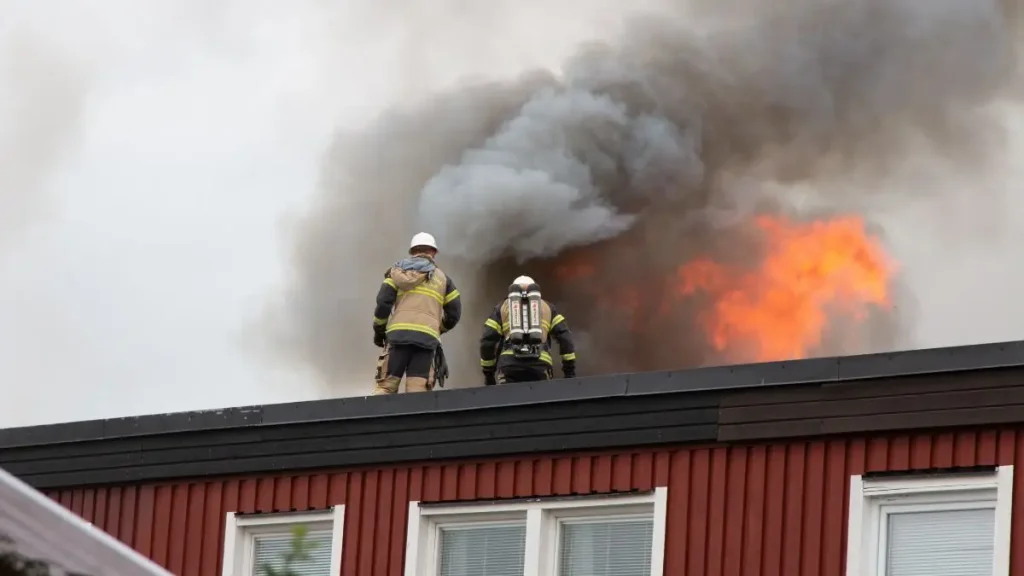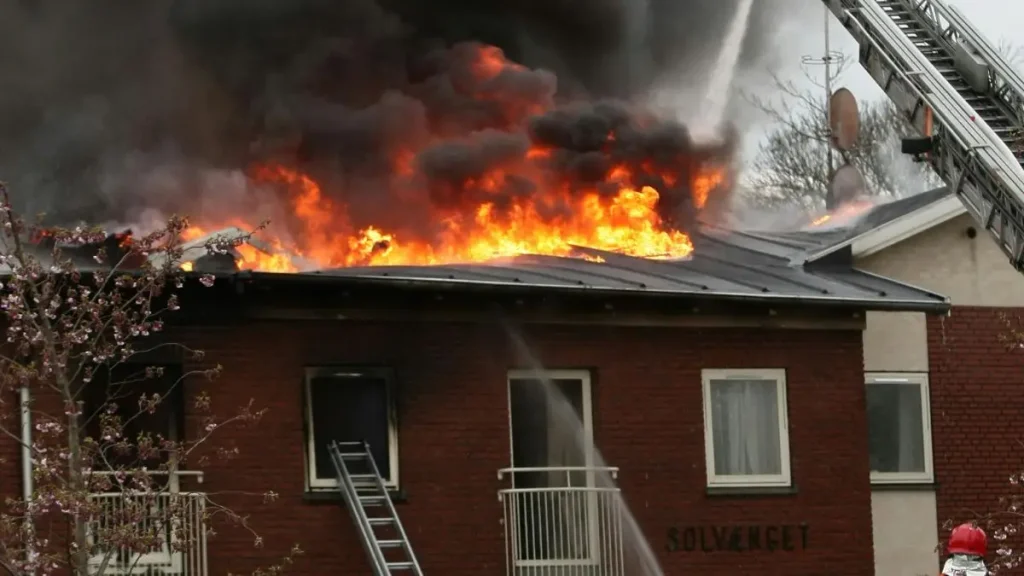Woman Injured in Little Cypress, Texas House Fire
When I first read about the fire in Little Cypress, it hit me just how quickly life can change. On Saturday afternoon, a house on Old Highway 87 went up in flames, leaving a woman hospitalized and her home completely destroyed. I can only imagine the shock of seeing your home engulfed in smoke and fire, knowing that in moments, everything you’ve built could vanish.
The Orange County Emergency Services District 3 responded just before 2 p.m., rushing to 9600 Old Hwy 87 after reports of a structure fire. Firefighters arrived to find the house fully engulfed, with smoke pouring from every corner.
Thankfully, the homeowner and her two dogs managed to escape, but one woman still needed hospitalization. No other injuries were reported, though two adults are now displaced, facing the hard reality of starting over after a total loss.
It’s a sobering reminder that fires don’t just destroy buildings—they upend lives. And while firefighters worked quickly to contain the blaze, the emotional and practical impact on the residents is immense.
Cause and Origin of the Fire

I kept wondering how such a sudden disaster could strike. According to 12NewsNow, the fire reportedly started in the garage. Assistant Fire Chief Joey Ernest explained that while the flames spread quickly, they didn’t threaten the neighboring home owned by a firefighter with the Dewyville Fire Department.
The exact cause is still under investigation, but it serves as a reminder of how vulnerable even familiar spaces can be. Garages, electrical systems, and everyday items can unexpectedly spark fires.
It makes me think: are our own homes as safe as we believe? Taking small precautions—like checking electrical outlets or keeping flammable items away from heat sources—can make a big difference.
Unfortunately, fires can be sudden and deadly, as seen in other incidents like the tragic fire in El Paso, Texas, where one life was lost despite swift emergency response.
Response and Rescue Efforts
One thing I couldn’t help but notice was how quickly help arrived. Multiple agencies jumped into action, showing what community coordination really looks like. Orange County ESD 1 and 4, South Newton County ESD 1, West Orange Fire Department, Orange Fire Department, Pinehurst Fire Department, and Acadian Ambulance all provided mutual aid to control the fire.
Thanks to their rapid response, the flames were contained before they could reach neighboring homes. Knowing that so many trained professionals were working together is reassuring.
But it also makes me reflect on how important it is for us as residents to have smoke detectors, emergency plans, and awareness—it’s a partnership between the community and first responders.
Quick and coordinated firefighting efforts can save lives, though not all fires end without tragedy—like the Cleveland home fire where two people lost their lives despite firefighters’ efforts.
Community and Personal Impact
Reading about the fire, I couldn’t ignore the human side of it. Two adults are now displaced, dealing not just with the loss of a home but also the emotional toll that comes with it. The homeowner’s two dogs made it out safely, but the house itself is a total loss.
Fires like this hit hard because they strip away security and comfort in an instant. They leave a ripple effect: neighbors worry, friends step in to help, and the community rallies to support those affected.
For anyone reading this, it’s a reminder to check your own home safety measures, think about your emergency contacts, and maybe even talk to neighbors about mutual support. Small steps can make a huge difference if disaster strikes unexpectedly.
For quick updates and alerts on local emergencies like this one, you can also join real-time community info channels on WhatsApp to stay informed instantly.
Preventive Measures and Safety Tips

After reading about this fire, I started thinking about what I could do to avoid a similar situation in my own home. Fires often start in places we least expect—like garages, electrical outlets, or cluttered storage areas. Taking small, consistent precautions can save lives and property.
Local fire officials suggest checking electrical systems regularly, keeping flammable items away from heat sources, and ensuring smoke detectors are installed and functional. Even simple things, like having a fire extinguisher in accessible areas, can make a huge difference. I encourage you to walk through your home today and think: “Am I prepared if a fire breaks out?”
Community workshops and fire safety education programs are also valuable. They not only teach practical steps but also raise awareness about how quickly a fire can escalate. Prevention isn’t just about equipment—it’s about mindset.
Incidents like the Penn Yan, New York fire, where two residents were rescued, highlight the importance of smoke detectors and emergency planning to increase survival chances.
Emotional and Community Takeaways
It’s easy to focus on the house and the fire itself, but the deeper impact is on people. Displacement, trauma, and the sudden loss of personal belongings weigh heavily on survivors. I can’t help but feel empathy for the homeowner and her pets—two lives spared but everything else gone.
The community’s response shows how we can come together in tough times. From neighbors checking in to multiple fire departments coordinating efforts, this incident reminds us that support systems matter.
As a reader, I ask you: have you considered how your own community could respond in an emergency? Sharing safety plans and staying informed can strengthen everyone’s resilience.
Key Takeaways and Reflection
So, what can we learn from the Little Cypress house fire? First, disasters can strike anyone, anytime. Second, rapid response from trained professionals can save lives, but preparation at home matters just as much. Finally, the emotional and practical aftermath of such events reminds us of the importance of community and personal readiness.
If there’s one action I hope you take today, it’s this: review your own home’s safety measures, check smoke detectors, and think through an emergency plan. Fires are sudden, but being proactive can make the difference between devastation and survival.
Have you ever checked your home for potential fire hazards? Take a moment to do it today—it could save more than just your property.
If you want to read more real-life stories of home fires and safety tips, check out our Home Incidents section for the latest updates and advice.
Disclaimer: The information in this article is based on reports from local authorities and news sources at the time of writing. It is intended for informational purposes only and should not be considered professional or legal advice. Readers are encouraged to verify details and follow official safety guidelines.


